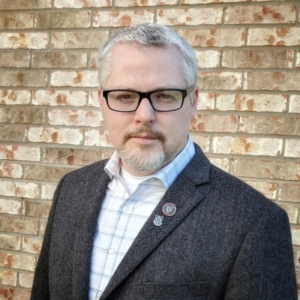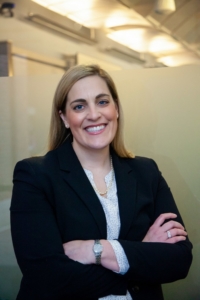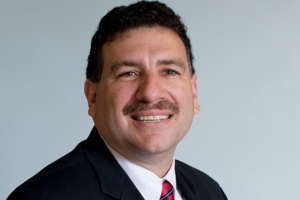
Cornell University’s Brendan Wyker
5) Leverage Diversity: “The biggest lesson I learned was the importance of building diversity within a team and not just finding “the right fit.” When we look for people who fit into a team, we end up looking for people are just like ourselves and this limits the potential ideas and perspectives that the team can be considering. At work, I am trying to teach my colleagues that we should not be looking for residency candidates who fit into our program and encourage them to consider non-KSA attributes. By limiting our scope, we may miss the opportunity to train physicians who could innovate and change the lives of others in the future.”
Celestine Tung, Rice University (Jones)
“The biggest lesson was about communication. I felt it was a strength of mine before entering the program. When working with such a diverse group of smart people, it can be easy to underestimate the importance of making sure everyone is on the same page. There’s huge strength in having a diversity of thought attacking a problem from multiple perspectives, but that means taking more time to clearly define a problem and ensuring there is actual agreement with that definition. It may take more time up front, but it pays tremendous dividends in delivering a better end product.
Brendan Wyker, Cornell University (Johnson)
6) There Are Many Ways To Achieve Goals: “I had a ‘my way’ or the highway approach to leadership, which proved to be ineffective. I learned a lot about myself from the 360 evaluation. The curriculum effectively demonstrated that I needed to allow my clinical teams to utilize their skills in order to improve our overall team performance. Each one of my team members has strengths and weaknesses and it’s my job to help fully develop their strengths. This executive MBA program taught me that I had to change in order for my team to flourish.”
Harry Stafford, University of North Carolina (Kenan-Flagler)
“My biggest takeaway was capacity creation. You have to be able to deliver at work, deliver at school, and be present for the people that matter to you. The reality is that you can’t do it all at the same time in the exact way you may want. The program forces you to learn to make tradeoffs. Sometimes you learn from the mistakes and other times by watching and learning from your classmates.”
Nina Lotfi, Northwestern University (Kellogg)

University of North Carolina’s Joanne Neighbors
7) Break Down Barriers: During my MBA, I learned the extraordinary value of cross-functional teams. “Throughout my career, I’ve worked primarily with legal professionals (lawyers, law office managers, and paralegals) on problem-solving or other major projects. Many of us work in places where issues are “siloed” by functional area. Those functional groups – like neighboring tribes – compete against one another for resources. My MBA has taught me that cross-functional teams produce more comprehensive solutions that use resources more efficiently and reduce barriers to implementation. At work, I’ve encouraged leaders to integrate members of other staff sections into our internal working groups and planning teams. As a result, we’ve seen outcomes and efficiency improve within those teams.”
Joanne Neighbors, University of North Carolina (Kenan-Flagler)
8) Move At The Speed Of Business: “In academia we need ten committees and a year to make a decision. Sometimes, we have a very narrow, specialized, discipline-specific focus. The TCU EMBA and the interaction with my classmates inspired me to be comfortable in the grey zone, between the no longer and not yet, to make a decision and re-adjust course as necessary. By comparison, this looks like the speed of light by comparison to academia. What a gift to be more business-minded in academia! I started a new Master’s program in my school (UNT Health Science Center), and applied the learnings from my TCU EMBA in terms of marketing, business model, thinking about competitive advantage, and response to job market trends and changes in the health care industry in the process of designing the academic program.”
Nicoleta Bugnariu, Texas Christian University (Neeley)
9) You Can’t Do Everything Alone: “No matter how amazing the leader or big the impact, value is not created in a silo. That’s true in many areas of life from successful entrepreneurship to leading teams to saving lives. This is something that I knew before coming to business school, but have come to appreciate it more-and-more over the last 21 months in the program. I have a keener appreciation of everyone at work from volunteers, medical students, and consultants to secretaries, janitors, and world-renown surgeons. It really takes a team to take care of patients holistically, which is the most successful way. I am a better person and a better doctor for having learned these lessons at Darden.”
Leigh-Ann Webb, MD, University of Virginia (Darden)
10) Keep It Simple: “I left a highly-structured and process-oriented role in investment banking and venture capital to start my own business. When doing so, I rebelled against process and procedure in my new company, which during my EMBA I realized how this was stunting our organizational growth. I began to reapply some simple budgeting, performance reviews, and processes which have enabled us to scale and grow effectively.”
Jeremy Schwartz, U.C.-Irvine (Merage)

MIT Sloan’s Christopher J. Kwolek
11) Emotion Trumps Logic: “I work in a very stimulating and polite environment: yet, internal tensions and emotions are lurking beneath the surface. The ability to see, decipher, and try to make sense of and influence these emotions can lead a long way….often far more than compelling logical arguments.”
Marco Amici, Ph.D., IMD
12) Find Expertise Outside Your Industry: “After taking the Economics of Healthcare course taught by Professor Joseph Doyle, I developed a new appreciation for the views of non-clinicians to explain the complexity of our health care system and how broken many parts of it are. I realized that if we are going to successfully transform this industry, it will be with insights from those both outside and within the healthcare field. This will require collaboration from dedicated innovators who are clinicians, patients, entrepreneurs, and scientists with expertise in data analytics, who are willing to ask difficult questions, try small experiments, and challenge the status quo. This model will have the potential to transform how we approach new projects going forward.”
Christopher J. Kwolek, MIT (Sloan)
“In most organizations, that realization is present, but being part of an MBA program with a high level of diversity helps you develop more of an appreciation for similarities beyond your industry. , If I stayed in my bubble of agricultural firms, I would not have developed the same level of appreciation around topics like Corporate Ethics.”
James Pierce, University of Minnesota (Carlson)
DON’T MISS:
MEET THE BEST & BRIGHTEST EXECUTIVE MBAs FROM THE CLASS OF 2019
15 BIGGEST MYTHS ABOUT EXECUTIVE MBAs
THE BEST ADVICE FOR EXECUTIVE MBAs





Questions about this article? Email us or leave a comment below.